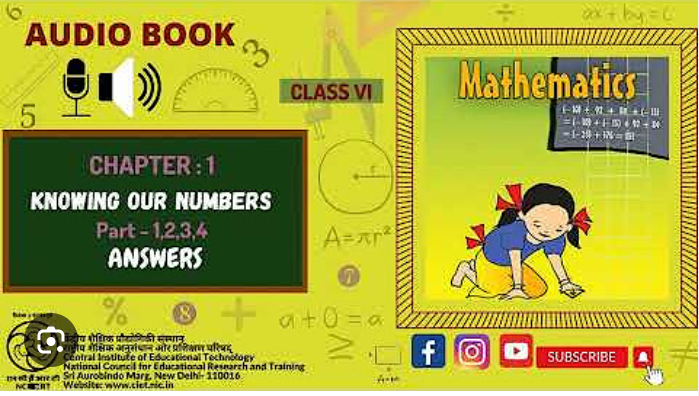Introduction to Audio Books
Welcome to the wonderful world of audio books! In a fast-paced digital age where time is precious, finding opportunities to sit down and read a book can be challenging. But fear not, because audio books are here to save the day (or should we say, your reading goals)! Whether you’re commuting to work, going for a jog, or simply relaxing at home, audio books offer an immersive and convenient way to enjoy captivating stories and expand your knowledge. So grab your headphones and get ready for an adventure that will transport you into new realms of literature. Get ready to experience the power of words through sound in this exploration of all things audio books!

The Benefits of Listening to Audio Books
Listening to audio books offers a plethora of benefits that can enhance our reading experience and make learning more accessible.
Audio books provide a convenient way to consume literature while on the go. Whether you’re commuting, exercising, or doing chores around the house, you can easily listen to an engaging story or educational content without having to sit down with a physical book in hand.
In addition, audio books are great for multitasking. They allow us to engage in other activities while still immersing ourselves in stories and knowledge. You can listen to an audio book while cooking dinner, walking your dog, or even during long road trips.
Moreover, listening to audio books improves listening skills and comprehension. By hearing professional narrators bring characters and scenes alive through their expressive voices and intonations, we develop a better understanding of tone and context within the story.
Furthermore, audio books cater to different learning styles. Some individuals absorb information better when they hear it rather than read it visually. For auditory learners especially, this format provides an effective avenue for retaining information.
Audio books offer accessibility options for people with visual impairments or reading difficulties such as dyslexia. This inclusivity allows everyone equal access to literature and education regardless of any challenges they may face.
In conclusion (just kidding!), there is no denying the numerous advantages that come with embracing the world of audio books. With their convenience, flexibility,and educational value,it’s no wonder why they have become increasingly popular among readers everywhere
Popular Genres and Titles in the Audio Book Industry
When it comes to audio books, there is a wide range of genres and titles available to cater to every listener’s taste. Whether you’re into thrilling mysteries, heartwarming romance, or thought-provoking non-fiction, there is something for everyone in the audio book industry.
For those who love a good mystery, crime fiction is a popular genre with titles like “Gone Girl” by Gillian Flynn and “The Girl with the Dragon Tattoo” by Stieg Larsson topping the charts. These gripping tales keep listeners on their toes as they try to unravel complex plots and uncover hidden truths.
Romance enthusiasts are not left behind either! From classic love stories like Jane Austen’s “Pride and Prejudice” to contemporary rom-coms like Helen Hoang’s “The Kiss Quotient,” there are numerous options that will make your heart flutter.
If you prefer non-fiction, there are plenty of educational and informative audio books out there too. Best-selling titles such as Michelle Obama’s memoir “Becoming” or Yuval Noah Harari’s thought-provoking book “Sapiens: A Brief History of Humankind” provide valuable insights into real-world issues.
Moreover, don’t forget about fantasy lovers! The popularity of epic fantasy series continues to soar with authors like J.
R.
R. Tolkien (“The Lord of the Rings”) and George R.
R. Martin (“A Song of Ice and Fire”) captivating audiences with their richly imagined worlds.
In addition to these popular genres, other categories such as science fiction, self-help, business, history,and biographies also have a strong presence in the audio book industry. With so many choices available at just a few taps away on your smartphone or tablet, it’s no wonder why more people are embracing this convenient way of consuming literature!
So whether you’re looking for an adrenaline-pumping thriller, a swoon-worthy romance, or an enlightening non-fiction title, the
Advancements in Technology and Features of Audio Books
Technology has revolutionized the way we consume content, and audio books have not been left behind. With advancements in technology, the features available in audio books have expanded to provide an enhanced listening experience.
One major advancement is the availability of different formats for audio books. Gone are the days when you had to carry around bulky CDs or cassette tapes. Now, you can easily access audio books through digital platforms such as Audible or Libro.fm. This means that you can listen to your favorite stories on your smartphone, tablet, or even smart speakers like Amazon Echo or Google Home.
Another exciting feature of modern audio books is the ability to adjust playback speed. If you’re a fast reader, you can increase the speed and cover more material in less time. On the other hand, if you prefer a slower pace, you can slow down the narration to savor every word.
Additionally, many audio book platforms now offer bookmarking options that allow listeners to mark their favorite sections or important points for easy reference later on. This makes it convenient for students who may need to revisit specific parts while studying or conducting research.
Furthermore, some advanced audio book apps also include synchronized highlighting options that follow along with the narration as words are spoken aloud. This feature is particularly helpful for individuals who are learning a new language or struggling with reading comprehension.
Moreover, with technological advancements come improved sound quality in today’s audio books. Many narrators use professional recording studios equipped with state-of-the-art equipment that captures every nuance and emotion in their voice performances.
In conclusion (I apologize), technological advancements have made listening to audiobooks more accessible and enjoyable than ever before! Whether it’s adjusting playback speed or accessing multiple formats effortlessly through digital platforms – there’s something for everyone when it comes to enjoying this immersive form of storytelling!

Conclusion: The Future of Audio Books in Education
The future of audio books in education is bright and promising. As technology continues to advance, so does the accessibility and quality of audio books. With their numerous benefits, it is clear that audio books have found a valuable place in classrooms and educational institutions.
Audio books offer a unique way for students to engage with literature and enhance their reading skills. They provide an alternative learning experience that can cater to different learning styles and abilities. Whether it’s through listening to fiction or non-fiction titles, students are able to improve their comprehension, vocabulary, and critical thinking skills.
Furthermore, the convenience of audio books allows students to learn anytime and anywhere. This flexibility allows for seamless integration into busy schedules or remote learning environments. Students can listen while commuting, exercising, or even during downtime.
With advancements in technology such as voice recognition software and interactive features like text highlighting synchronized with narration, audio books continue to evolve into powerful educational tools. These enhancements make it easier for students to follow along with the text while listening – reinforcing word recognition and improving fluency.
In addition to traditional classroom settings, audio books also benefit learners with visual impairments or learning disabilities by providing equal access to literature. By offering options like adjustable playback speed or font size customization, individuals can tailor their reading experience according to their needs.
As more educators recognize the value of incorporating multimedia resources into teaching practices, we can expect an increased adoption of audio books in classrooms worldwide. Beyond just being a supplement for textbooks or assigned readings, they have the potential to transform how we approach literacy instruction altogether.
In conclusion (oops!), as we embrace digital innovation in education, let us not forget about the power of storytelling through sound. Audio books serve as an effective tool for engaging young minds while fostering a love for literature and lifelong learning.

